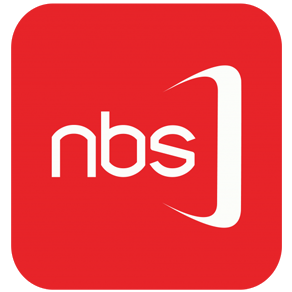URA Bans Consolidated Cargo Clearance

The Uganda Revenue Authority (URA) has announced sweeping reforms to streamline the clearance of imported groupage (consolidated) cargo, following rising concerns about fraudulent practices by so-called “container leaders” who have exploited small traders and undermined tax collection.
In a public notice issued on April 27, URA explained that while groupage cargo — goods belonging to different importers shipped together in one container — remains a legitimate practice, its clearance must strictly follow new compliance measures.
Each importer’s cargo must now be transferred and cleared under their individual Tax Identification Number (TIN) to curb malpractice.
URA said the fraudulent clearance of consolidated cargo under the personal names or TINs of container leaders has led to inflated tax charges, illegal VAT refund claims, and significant losses for small traders. Several individuals involved have already been arrested and charged.
The tax body outlined common abuses, including collecting money from importers under the guise of paying taxes but failing to remit to URA, overcharging on tax payments, and submitting false customs documents.
“These malpractices have enriched unscrupulous actors at the expense of genuine traders and government revenue,” URA noted.
The crackdown comes at a time when Uganda continues to grapple with high levels of tax evasion.
According to URA’s latest estimates, the country loses approximately Shs 5 trillion (about USD 1.3 billion) annually to various forms of tax evasion, representing nearly 10 percent of its Gross Domestic Product (GDP).
Customs-related fraud, including under-declaration, misclassification, and fraudulent groupage clearance, accounts for a significant portion of these losses.
Officials warn that unchecked tax evasion undermines Uganda’s ability to finance critical sectors such as health, education, and infrastructure.
Individual bills
To simplify compliance, URA has now directed that legitimate cargo consolidators must provide a master bill for all cargo in the container, issue individual house bills for each importer, and transfer each cargo to the respective importer’s name and TIN upon arrival.
Importers themselves must also provide genuine commercial documents.
URA emphasized that cargo consolidation itself is not banned.

“Traders can still jointly transport goods in one container. However, clearing such cargo under a fraudulent name or TIN — referred to as Groupage Cargo Clearance — is now banned,” the notice stated.
Responding to concerns raised by traders about the reforms, URA spokesperson Robert Kalumba said fears that the new directive bans consolidated container imports and cripples small businesses are unfounded.
“This is not true,” Kalumba explained. “What is banned are container leaders presenting goods grouped in one shipment, although belonging to multiple traders, and fraudulently clearing the entire shipment under their own name or TIN.”
Kalumba dismissed claims that container leaders fairly distributed the tax burden among traders, describing such suggestions as “very inaccurate.”
He noted that many small traders had long complained about exploitation by container leaders who collected money under false pretenses and inflated tax amounts beyond what URA had assessed.
Flexibility
Addressing questions about whether URA offers flexible payment plans for traders, Kalumba said, “URA has always supported small traders through measures like storage facilities for cargo and partial clearance of goods, allowing more flexible tax payment opportunities.”
Kalumba also stressed that the new policy is designed to protect rather than harm small traders.
“It supports all traders, including small ones. It only fights the fraudulent practice of individuals clearing goods that do not belong to them.”
On tax management for shared containers, Kalumba explained that URA’s approach promotes fairness by ensuring that each trader pays taxes for their goods under their own name and TIN.
“Everybody wins; the importer is not exploited by container leaders, and URA collects a fair share of taxes payable,” he said.
URA urged traders to embrace self-clearance or work with genuine agents to avoid falling prey to middlemen.
For inquiries and assistance, traders were advised to contact Henry Kwaligonza, Manager Warehousing – Customs, at the contacts provided by URA.







